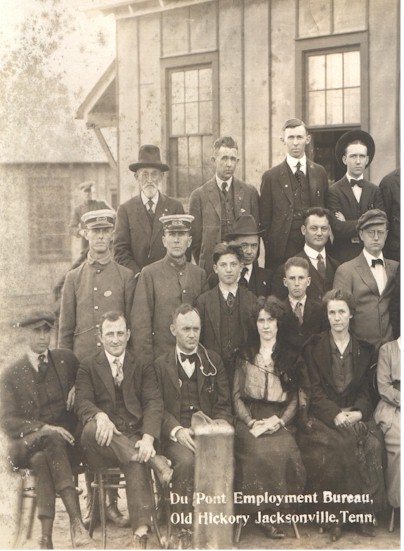
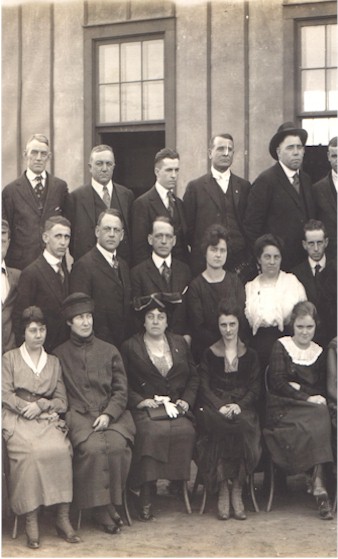
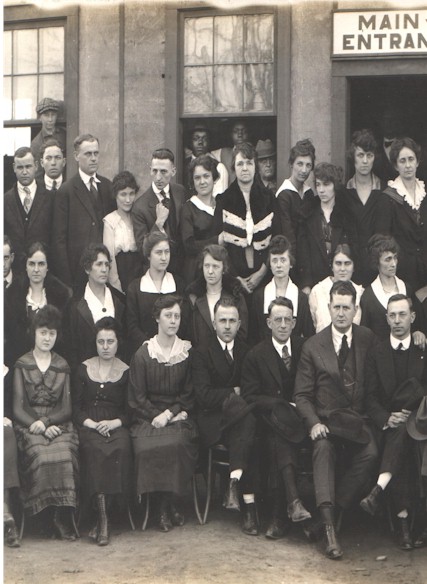
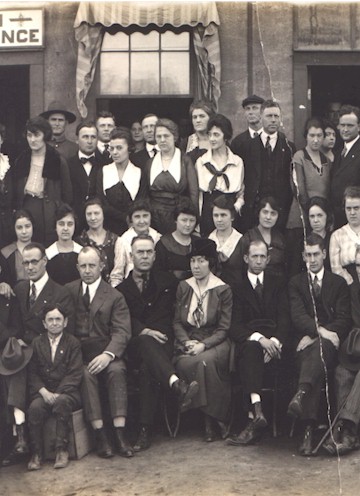
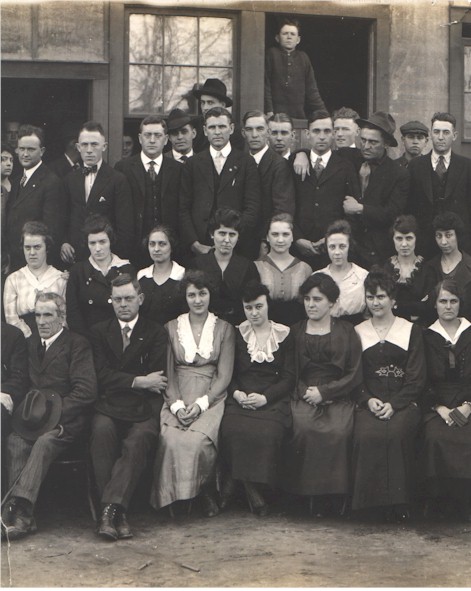
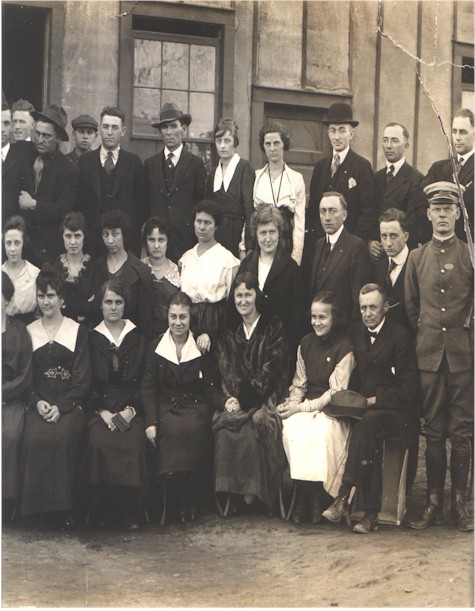
|
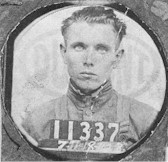 |
His
occupation was rigger and his pay was listed as
"55". The time was July 1918 and the man
was Harvey Morris. He is the great uncle of
Neal Hancock (Sontara®). |
|
|
| The
following information is taken directly from David
Brand's Thesis at Vanderbilt University -
"Fill the Empty Shell: The Story of the Government
Munitions Project at Old Hickory, Tennessee
1918-1919" – May 1971 |
Du Pont set up an
employment office in Nashville in February, 1918.
In the early
stages of the construction, enough workers were available in the
Nashville area, but as the need for more workers arose, labor
recruiters were forced to travel farther from Nashville to find
the needed numbers of men. Competition from other wartime
industries and the real shortage of manpower necessitated
recruiting throughout the South and Southwest.
The task of
recruiting sufficient laborers proved to be a continuing and
problematic undertaking. Competition among labor recruiters from
the various defense projects and the bitterness of employers
whose workers deserted their old jobs to flock to the higher
paying jobs at the munitions plants complicated the problems of
expanding the work force at Old Hickory. On April 13, 1918, two
representatives of the Du Pont Engineering Company were arrested
in Chattanooga, Tennessee, for recruiting workers. Local police
charged them with doing business without a license upon the
complaint of local manufacturers, who accused them of attempting
to entice workers away from their jobs in the city. Recruiters
from the Pittsburgh Plate Glass Company were similarly charged
in Nashville when they attempted to hire men for their
Pittsburgh plant.
The competition
for laborers and the lack of specific and enforced regulations
defining acceptable labor procurement policies caused continual
conflict. War Labor Board officials in Washington designated
general geographic areas wherein the various munitions plants
were to have exclusive recruitment rights, but there is little
to indicate that these guidelines were observed. Du Pont Company
correspondence between Old Hickory, Wilmington, and Washington,
D.C. contains repeated references to incursions of other
companies and modifications in Du Pont's recruiting program
brought about by the competitive market for workers.
|
| Powder
Plant News - August - 1918 |
| Can't
Loaf On Job |
| A warning
against loafing has been posted near every tempting
shade at the powder plant. Any man who, finding an
excuse to get from under the eyes of his foreman for a
few moments seeks a few minutes respite from the torrid
sun may be notified by a policeman that his pay will be
a little short as a result. The penalty is one
hour's pay for the first offense, two hours for the
second, while the third offense a man will be
discharged. |
|
| Our
Office Your Office |
| An invitation
is extended to the employees of du Pont Engineering Co.
and the Mason & Hanger Co. to make our office, 1017
Independent Life Bldg., their headquarters while in the
city. If you wish to have a friend meet you, meet
him here. If you wish to write a letter you will
find stationery and a stenographer at your
disposal. A directory of boarding and rooming
houses, such as you would be willing to make your home,
will be open to our friends, and any service or
information will be furnished free of charge. We
wish to do our bit in making our new citizens feel at
home. To that end we expect to keep "open
house" for the employees of the plant. |
|
| The
Arm of the Working Man |
| It was no
less a soldier than the great Hannibal who said that the
blow of the workman on the anvil was equal to the blow
of the soldier on the field of battle.
It is truly so.
Working men of the Powder
Plant, we realize the fact that Uncle Sam has no braver,
no nobler soldiers than those who are bringing from the
cotton and corn field a fortress that will hurl bolts of
thunder to destroy his enemies and the enemies of
mankind. In truth and in fact you are on the
firing line. In truth and in fact you are doing
much to stop the Hun, by your faithful, untiring and
laborious work, as those who are standing on the front
line of battle. For without the product of your
labor the Hun would walk with butchering fury over the
civilized world. And rest assured that your
country knows it. Be assured of their confidence
and faith in you, a Unit of the great army of working
men, an arm of the great body of labor in the United
States.
And now to the
point: Conditions may not be, for the present, as
good as they might be at the Powder Plant. A few
months ago, between the banks of the Cumberland at
Hadley's Bend lay only this great field ready for the
plow. Today, by your effort, smokestacks with
plumed pinions stand in the sky, turrets of steel, in
the citadel of a conquering nation. This has been
done under most adverse conditions and trying
circumstances, but remember that as our brave boys now
live in the mud and blood of trenches unsheltered,
often, from pitiless skies of rain and snow and sleet,
surely you can stand a few of these unavoidable
inconveniences.
The boys at the front are
living under cruel conditions; surely without protest
and without complaining and with that faith and
patriotism which have always characterized American
working men you will not grumble at your
conditions.
There is no excellence
without great labor, saith the Latin poet. There
is no sweetness of compensation without great service,
say we. |
|
|